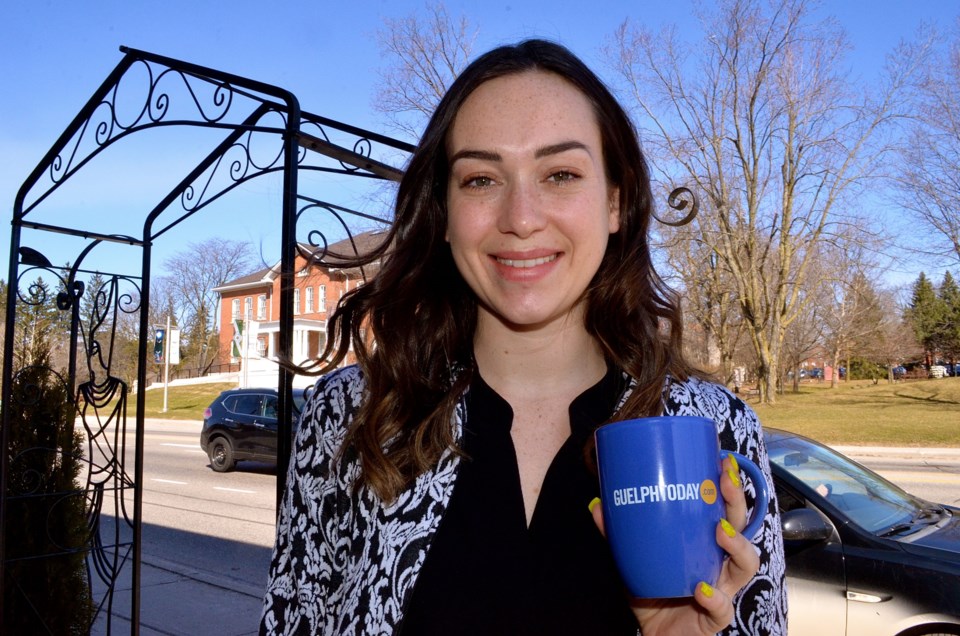Guelph researcher and entrepreneur, Kenna Whitnell, wants to fundamentally change the cosmetics industry so it is more economically and environmentally sustainable.
“One man’s trash is another man’s treasure,” said Whitnell. “I believe that is so true and when we are living in a world that understands the value of reusing and recycling I think it is silly that industries don’t connect that way.”
Whitnell has combined her business acumen, love of cosmetics and passion for scientific research to develop a line of healthy, ecologically sustainable beauty products made with agricultural waste from breadfruit cultivation.
“Breadfruit is really cool in that it is a strong antioxidant for the skin,” she said. “Artocarpus Altilis is the genus species of breadfruit and that is where the name Altilis comes from.”
Altilis Beauty is a new division of Soleluna Cosmetics Inc, a company Whitnell started while she was in high school.
“I would buy hippy skirts from Value Village and make them into harem pants,” she said. “I would by a skirt for two dollars and sell it for $20 and I thought I was a genius. I also had an Etsy Shop under the same name, Soleluna where I sold dream catchers, jewelry and clothing that I made.”
When she was in Grade 12, she put the business on hold to focus on her education but her entrepreneurial urges resurfaced during her first year of biochemistry studies at the University of Guelph.
“I have always made my own skin care products, makeup, hair care, everything,” she said. “When I went to university my new friends saw all these unlabeled glass jars and vials and they thought what the heck is going on? That’s when I started Soleluna Cosmetics.”
She developed personalized skin care systems for friends and family using essential oils and aromatherapy to treat things such as acne, eczema and rosacea.
“I did that for a couple years and I got into the HUB Incubator Program offered by CBaSE at the U of G,” she said. “At the same time I was starting this co-op out in British Columbia so, it really made me assess how to make my business scalable, buildable and very unique.”
Her professor at the University of British Columbia, Dr. Susan Murch is the founder of Global Breadfruit, a company that promotes the cultivation of breadfruit in impoverished communities around the world.
“Breadfruit is a staple food crop in the Pacific Islands and they actually use it as a solution for hunger,” said Whitnell. “It is better than other staple food crops because it provides all the essential amino acids. You can survive solely on breadfruit and not get protein deficiency or malnutrition.”
Whitnell’s university research focused on identifying non-food uses for the agriculture bi-products.
“I formulated a cosmetic raw material from the breadfruit flowers and then we did a lot of stability testing, microbial testing, and assays to prove its antioxidant potential and various cosmetic properties,” she said. “Then I formulated it into three skincare products that we tested on people not animals because it is meant for people.”
With help from Innovation Guelph’s Fuel Injection Program she qualified for a $30,000 federal grant to bring Altilis Beauty line to market.
The cosmetics are being manufactured in Cambridge and the raw materials are coming form Samoa.
“I am closely connected with a chief in Samoa who I work with to source my breadfruit flowers,” said Whitnell. “They consider it a waste product and think I am a crazy person paying them for their garbage.”
Whitnell hopes her approach will influence agricultural and other industries to communicate more and seek innovative ways to reduce waste and improve people’s lives.
“I am simply improving the economic value of the crop, which is just amazing to me,” she said. “They now have a new source of income just because I found a new use for something they have been growing for thousand of years.”
